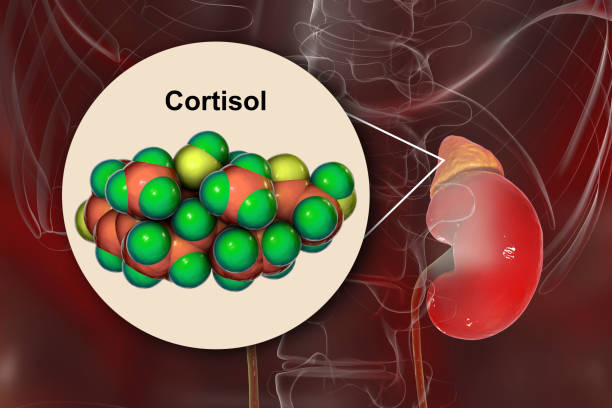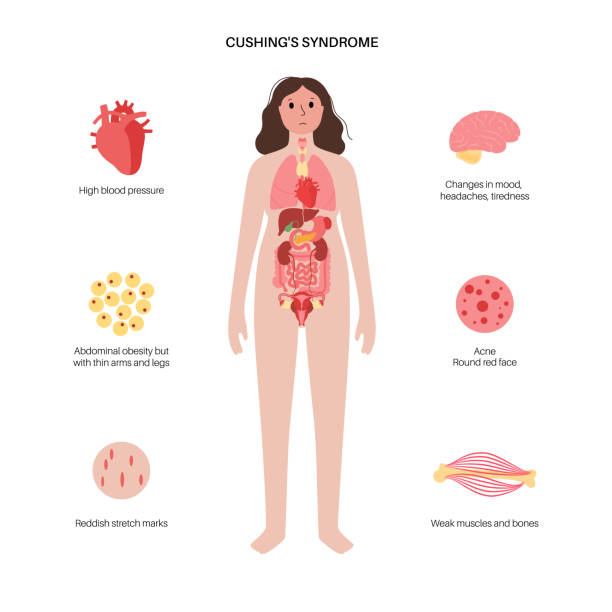Cushing Syndrome: Symptoms and Treatment
Cushing syndrome is a hormonal disorder caused by excessive production of the hormone cortisol. Cortisol is a steroid hormone produced by the adrenal glands and plays a key role in regulating the body’s stress response, blood pressure, immune system, and metabolism. When cortisol levels become too high for too long, it can cause a range of physical and emotional symptoms, collectively known as Cushing syndrome.
What are the Symptoms of Cushing Syndrome?
Cushing syndrome can cause a variety of physical, emotional, and behavioral symptoms, which can be broadly classified into three categories: weight gain, skin changes, and mood changes.
Weight Gain:
One of the most noticeable symptoms of Cushing syndrome is weight gain, particularly in the face, neck, and upper body. People with Cushing syndrome often have a rounded, “moon-shaped” face, and may also develop a “buffalo hump” on the back of the neck. In addition, they may experience an increase in abdominal fat and an overall increase in body fat percentage.
Skin Changes:
Cushing syndrome can also cause skin changes, such as easy bruising, thinning and slow healing of cuts, and a characteristic “purple” or “stretch mark” rash on the abdomen, hips, and thighs. People with Cushing syndrome may also experience acne, hirsutism (excessive hair growth), and skin infections.
Mood Changes:
Cushing syndrome can also cause emotional and behavioral changes, such as mood swings, depression, irritability, and anxiety. People with Cushing syndrome may also experience cognitive changes, such as memory loss and difficulty concentrating.
In addition to these symptoms, Cushing syndrome can cause other health problems, such as high blood pressure, osteoporosis, diabetes, and increased risk of infections and certain types of cancer. It is important to note that these symptoms can also be caused by other medical conditions, so it is important to see a doctor for a proper diagnosis.
What Causes Cushing Syndrome?
Cushing syndrome is caused by prolonged exposure to high levels of cortisol. There are several factors that can contribute to the development of Cushing syndrome, including:
Chronic use of glucocorticoid medications: Glucocorticoid medications, such as prednisone, are commonly used to treat a variety of medical conditions, including asthma, rheumatoid arthritis, and inflammatory bowel disease. When these medications are taken for a long period of time, they can cause Cushing syndrome.
Adrenal gland tumors: Cushing syndrome can also be caused by a tumor in the adrenal glands that produces too much cortisol. This type of tumor is known as an adrenal cortical adenoma.
Pituitary gland tumors: Cushing syndrome can also be caused by a tumor in the pituitary gland that stimulates the adrenal glands to produce too much cortisol. This type of tumor is known as a pituitary corticotrophic adenoma.
Ectopic ACTH syndrome: In rare cases, Cushing syndrome can be caused by a tumor in another part of the body that produces the hormone ACTH, which stimulates the adrenal glands to produce cortisol. This type of tumor is known as an ectopic ACTH-secreting tumor.
How is Cushing Syndrome Diagnosed?
Diagnosing Cushing syndrome can be difficult because the symptoms can be similar to other medical conditions, and there is no one definitive test for Cushing syndrome. A doctor will typically use a combination of medical history, physical examination, and laboratory tests to diagnose Cushing syndrome.

 Home
Home Health
Health Diet & Nutrition
Diet & Nutrition Living Well
Living Well More
More












